RDA Open Call for RDA / EOSC Future Domain Ambassadors #1
EOSC Future
Research Data Alliance
11 November 2021 - 12:00 am CET
15 February 2022 - 04:00 pm CET
Individuals or Organisations
€7.500
RDA and EOSC Future are delighted to announce the call for Domain Ambassadors in the context of EOSC. Establishing a network of experts is a critical step for the EOSC Future project in fostering the scientific discipline and domain specific support and engagement with the goal of explaining and clarifying the benefits of EOSC to new and underrepresented scientific communities.
Context and Background
RDA is running a series of calls, in the context of the EOSC Future project, to further enable the integration and uptake of EOSC services and more widely support advancements in terms of research data interoperability, management and sharing and the adoption of Open Science best practices.
In this specific case, the purpose of the RDA Open Calls is to engage disciplinary experts and groups through a bottom-up approach and ensure they contribute with their know-how to EOSC while bringing back benefits to their communities, raising awareness about EOSC and encouraging wider engagement. The purpose of these grants is to enable communities connected to RDA but outside of EOSC to leverage EOSC services and ultimately to support the community driven disciplinary developments and their integration into EOSC.
In accordance with the Horizon 2020 financial regulations, no individual or organization (third party) will be awarded more than 60.000 euro (sixty thousand euro). This limit applies cumulatively across all the RDA Open calls and the overall budget (1 million euro). Explicitly, a third party may apply and be awarded funding in different calls, but only be contracted for a total of 60.000 euro. If the limit is reached, no further contracts can be awarded to that individual or organization (third party).
Meet the grantees
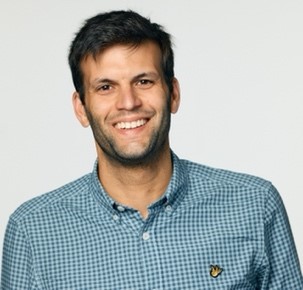
Domain Ambassador for catalysis
What:
Chemical Engineering, in particular Catalysis, can design the new circular economy based on powerful scientific models. While Open Science Tools for using data are being developed (catalysis informatics), data sharing is incipient and significant community level activities do not exist. My main goal is, thus, to break the ground and make data sharing a community practice.
Who:
Pedro Mendes, assistant professor at Universidade de Lisboa (Portugal).
Biography:
Scientific Domain:
Catalysis
Your Domain specific Engagement:
Moderation of the “Chemistry Europe Data Day” organized by ChemistryOpen journal (of Wiley-VCH) on 18/10/2022. The discussion of the current open science practices in chemistry led to concrete actions on how to further promote data and knowledge sharing within our community. Widespread use of electronic laboratory notebooks is deemed to be central.
Your Promotion and Networking:
National:
- Developed and instructed the workshop on Open Data in Catalysis: “Open Data Crash Course”, at Técnico, Universidade de Lisboa (Portugal) on 03/06/2022.
International:
- Catalyzed the first community curator in Chemistry/Catalysis at fairsharing.org (Daniel Costa, PhD student at Técnico)
- Co-developed the presentation of RDA/EOSC ambassadors at ACUM2022 (https://acum.unitbv.ro/)
Pedro and his activities are also featured on the RDA website.
Your Connection to RDA WG/IG or CoP:
Pedro is co-developing the RDA disciplinary page on chemistry. Interested in telling your open data story regarding your chemical data? Reach Pedro via pedro.f.mendes@tecnico.ulisboa.pt.
He is active in the following WG/IG:
- Chemistry Research Data IG
- Early Career and Engagement IG
Your Outputs:
“Open Data Crash Course for Catalysis”, Zenodo, https://doi.org/10.5281/zenodo.6606551
Country:
Portugal
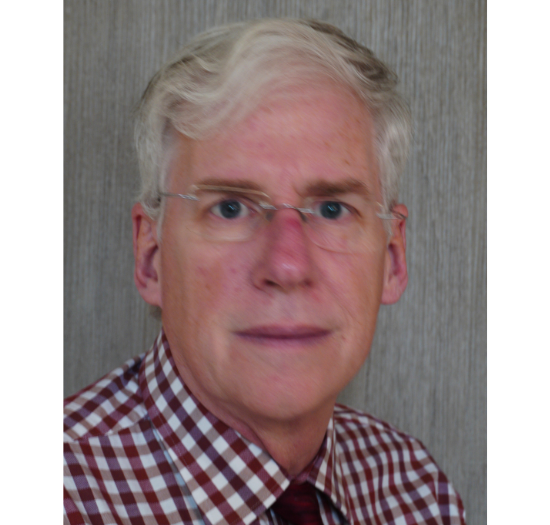
Domain Ambassador for ethics & law
What:
The RDA / EOSC Future Ambassador for Ethics & Law has the goal of advancing the understanding of the European Open Science Cloud Future Project with scientists and research institutions, as well as with patients, communities, health advocates, and the public, providing important emphasis on those instances otherwise underrepresented in initiatives for Open Science.
Who:
Francis P. Crawley, Executive Director of the Good Clinical Practice Alliance – Europe (GCPA) and the Strategic Initiative for Developing Capacity in Ethical Review (SIDCER) located in Leuven, Belgium.
Biography:
Scientific Domain:
Ethics & Law
Your Domain specific Engagement:
- Ethics & Science Advisory Board of the EU-funded project ‘European Corona Vaccine Trial Accelerator Platform (VACCELERATE)’ (Horizon Europe Grant agreement ID: 101037867)
- BGI Dialogues on Science, Philosophy, and Society; Shenzhen, China
- OPENCORONA: A DNA vaccine platform against SARS-CoV-2 (Horizon Europe Grant agreement ID: 101003666)
- Global Alliance for Genomics and Health (GA4GH), Regulatory & Ethics Work Stream (REWS)
- IMI2-funded project ‘Modern approaches for developing antivirals against SARS-CoV 2 (MAD-CoV 2) (Grant agreement number: 101005026)
- IMI2-funded project ‘Viral haemorrhagic fever: modern approaches for developing bedside rapid diagnostics (VHFMoDRAD)’ (Grant agreement number: 823666)
- IMI2-funded project ‘conect4children - Collaborative network for European clinical trials for children (c4c) (Grant agreement number: 777389)
- Global Forum for Research Ethics & Integrity (GFREI)
- International Data Week (IDW) 2022 & RDA 19th Plenary; Seoul, South Korea
- Bioethics Education International Summer School 2022; New York, New York, USA
- DIA/UCRSI Webinar Series: A World in Crisis: Global Impacts [on Clinical Research] of the Conflict in Ukraine (forthcoming Special Issue Global Forum (March 2023)
- European Forum for Good Clinical Practice (EFGCP), eConsent Working Group
- IFAPP Ethics Working Group
- Pistoia Alliance
- AVAC/PHASES Think Tank to Advance HIV Prevention Research in Pregnant and Lactating Populations
Your Promotion and Networking:
- International Training Workshop on Open Science and SDGs: Session on Overview of Open Science and SDGs, virtual, Beijing
- FORCE11 Research Data Publishing Ethics Working Group
- WorldFAIR: Global cooperation on FAIR data policy and practice (Horizon Europe funded)
- ICG 17: The Annual Meeting of the International Conference of Genomics BGI Dialogues on Science, Philosophy, and Society Humanities and Bioethics in Omics, Chengdu, China
- The Ethics of Data Integrity & Open Science in Cancer Research and Cancer Research and Cancer Care During the War in Ukraine: Addressing the Challenges of Conflict and Displacement, Organised Under the Auspices of London Global Cancer Week 2022
- EOSC Symposium 2022, Prague, Czech Republic
- FAIRsharing Community Curation Programme
- International Data Week (IDW) 2023 Program Committee
- Coalition for Advancing Research Assessment (CoARA)
- PRIM&R Annual Conference, USA, 2022
Francis and his activities are also featured on the RDA website.
Your Connection to RDA WG/IG or CoP:
- Co-chair, EOSC-Future / RDA Artificial Intelligence & Data Visitation Working Group (AIDV-WG)
- RDA COVID-19 Working Group
- RDA COVID19-Legal-Ethical
- FAIR for Machine Learning (FAIR4ML) IG
- Health Data Interest Group
- Active Data Management Plans IG
- Discipline-specific Guidance for Data Management Plans WG
- DMP Common Standards WG
- FAIRsharing Registry: Connecting data policies, standards and databases RDA WG
- Life Science Data Infrastructures IG
- Working and Interest Group Chairs
Country:
Belgium
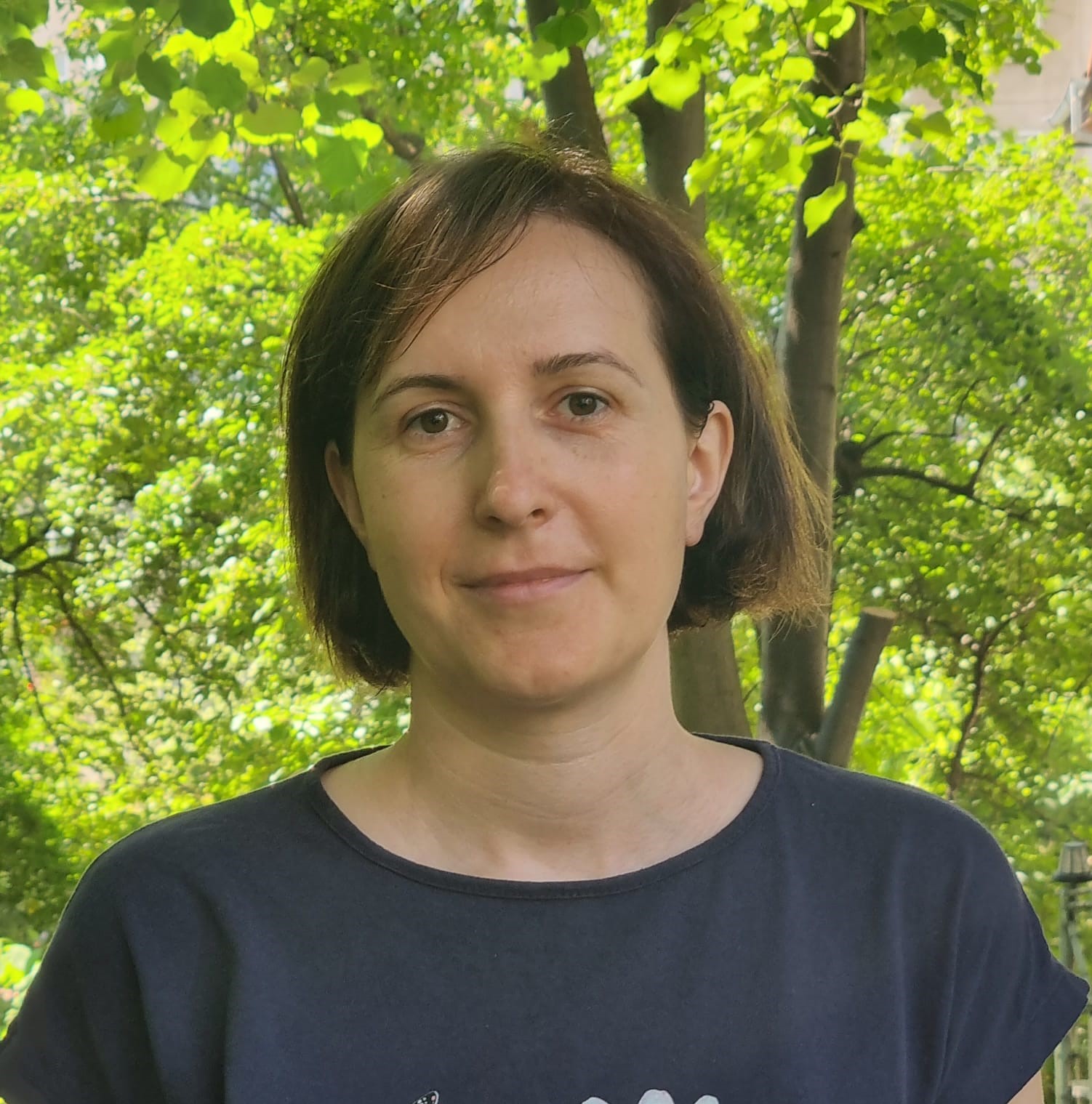
Domain Ambassador for social sciences
What:
I am university lecturer and I proposed a RDA Ambassador plan for the period of May 2022 – August 2023. The main objective is to actively promote to what EOSC Future and RDA have to offer to social sciences specific domain/discipline community (e.g.
Who:
Geta Mitrea, is a lecturer at University Stefan cel Mare of Suceava and EOSC Future Ambassador social sciences.
Biography:
Scientific Domain:
Social sciences
Your Domain specific Engagement:
Social Sciences Domain (including Sociology, Social Work, Human Resources, etc.)
Your Promotion and Networking:
- Coordination of a panel on "FAIR Movement" to the International Colloquium of Social Sciences and Communication ACUM 2022 and the National Romanian Sociologists Society Conference organised in Romania
- Coordination of the panel "FAIR Movement on Open Science from Social Sciences" at the International Colloquium of Social Sciences and Communication ACUM 2022 and the National Romanian Sociologists Society Conference
- Organisation of an international workshop on "FAIR Movement" on Social Sciences with students and specialists from Social Work from Romania and Mauritius, 3rd year of study
- Organisation of a workshop on "FAIR Movement" in Social Sciences with students and specialists from Social Work, 2nd year of study
- Media release about the RDA Ambassadors in Romania
Geta and her activities are also featured on the RDA website.
Your Connection to RDA WG/IG or CoP:
I am a member in the following Working Groups:
Your Outputs:
- ORCID: https://orcid.org/0000-0002-2411-1798
Country:
Romania
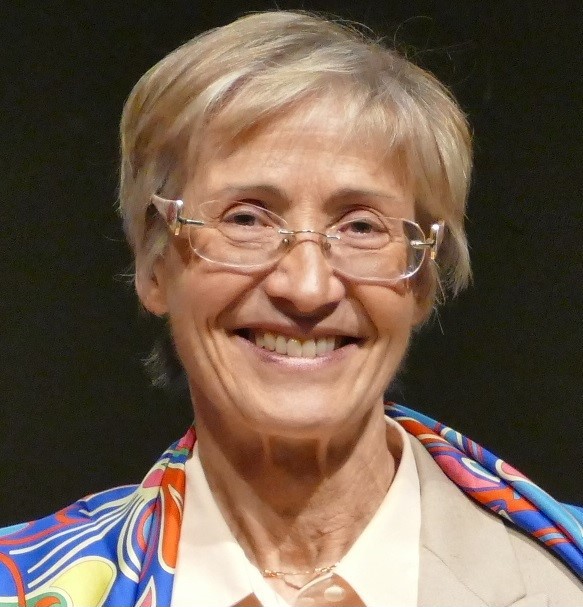
Domain Ambassador for human immunogenetics and health ethics
What:
Increasing the awareness and implementation of Open Science and especially Open Data in human immunogenetics, genetics, bioethics and research ethics communities, through participation in meetings and education schemes in these domains. Fostering data sharing in these fields and making the values underpinning Open Science an essential elements of consideration.
Who:
Anne Cambon-Thomsen, French medical doctor specialised in human immunogenetics, now health ethics and Emeritus Research Director at CNRS.
Biography:
Scientific Domain:
Human immunogenetics and health ethics
Your Promotion and Networking:
International
December 2022: Finalisation of the FAIRplus project: "Cookbook" and "education programme"
November 2022: UNESCO Chair "Science, ethics and society": Ethics and Open Science
August 2022: Conférence EPITER: Epidémiologie et santé publique : frontières technologiques et éthiques (summary)
June 2022: Annual Conference of the European Society of Human Genetics (ESHG): Ethical values in relation with Open Science and FAIR data principles applied to human genetics research
May 2022: Annual Conference of the European Federation for Immunogenetics (EFI): Recognition of scientific contributions in immunogenetics in the era of Open Science
National
December 2022: Local seminar for the Public Health research local community (report)
December 2022: University course on Ethics of Open Science in Master Programme "Open science & reproducible science" (University of Marseille)
November 2022: French Society of Archivists "Concilier ouverture, protection et conservation des données": Speaker in round table discussion on "Archivage et protection des données comme outils de l’intégrité scientifique"
October 2022: Public lecture on Open Science in the framework of an Association of dissemination of science (Assoscience): Science ouverte qu’est-ce que c’est et où en est-on?
Anne and her activities are also featured on the RDA Website.
Your Connection to RDA WG/IG or CoP:
- RDA Plenary P19 : (Seoul) virtual participation to 2 sessions as speaker (SHARC IG and Output and impact session)
- EOSC activities in relation with Health data: I followed the EOSC life workshop on “Sharing sensitive data” (27 September 2022)
I am especially active in the following RDA groups:
- Artificial Intelligence and Data Visitation (AIDV) WG where I am co-pilot of a deliverable on informed consent
- Sharing Rewards and Credit (SHARC) IG where I am a co-Chair; we have done a survey on the ways to recognise Open Science activities
Country:
France
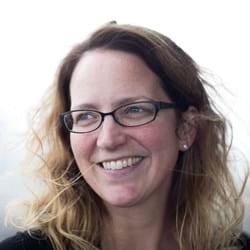
Domain Ambassador for standards, repositories and policies
What:
As the RDA/EOSC Future Domain Ambassador for standards, repositories and policies, I will focus on enriching the relationships among these resources through the development of a FAIRsharing Community Curation Programme.
Who:
Allyson Lister, FAIRsharing Content & Community Lead at the Oxford e-Research Centre, Department of Engineering Science, University of Oxford.
Biography:
Scientific Domain:
Standards, repositories and policies
Your Domain specific Engagement:
To turn FAIR into reality, both technical and social aspects need to be considered. While there has been a lot of focus on the technical aspects of implementing FAIR (and FAIRsharing is an important part of that), it is the social aspects that are the most interesting for me. Improvements in the uptake and understanding of FAIR require domain experts that are skilled communicators and who can strengthen ties among stakeholders and communities. Such social skills are key to promoting the adoption and use of community practices and outputs from RDA groups and EOSC projects. A key function of my ambassadorship is to utilise our FAIRsharing Community Curation Programme and my engagement in RDA, EOSC projects and ESFRIs as well as a broad range of other initiatives to help promote these outputs and increase community ties.
FAIRsharing is a RDA WG and an endorsed output, a ‘de facto’ element of the EOSC ecosystem recommended by many EOSC formal reports, and a recommended interoperability resource within ELIXIR. Communication is central to my work as FAIRsharing Content and Community Lead. The FAIRsharing community network allows me to access the expertise of a number of stakeholders across the research life cycle, including EOSC knowledge providers (e.g. OpenAIRE, DataCite), EOSC clusters (e.g. EOSC-Life, ESCAPE), researchers, data stewards, trainers, librarians, policymakers, publishers, resource and infrastructure and tool developers and curators.
I am in the unique situation of being a cross-domain expert for FAIR data and open science, rather than being tied to a single domain. Alternatively, you could say that my ‘domain’ are those resources that, when viewed as a network of interconnected nodes, provide a view of the FAIR ecosystem that is a vital part of collaboration and communication.
Through the ambassadorship, I have launched the FAIRsharing Community Curation Programme, which which promotes and utilises the FAIRsharing community to further enhance and consolidate FAIRsharing to the benefit of the broader community, extending EOSC’s message of open science and community across all disciplines. This programme focuses on two main outputs: the enrichment of the resource landscape via FAIRsharing curation, and the production of associated educational material. In return, the programme curators gain attribution and expertise, as well as networking with a community of like-minded experts.
Your Promotion and Networking:
International
- November 2022: EDDI22 FAIRsharing Community Curation: Mapping the Social Sciences Resource Landscape (slides)
- November 2022: EOSC Symposium: Making Data Policies FAIR (slides); FAIRsharing: curating resource relationships and building community engagement (slides)
- September 2022: Research Data Management in Cardiovascular Science Conference by the German Society for Cardiology (DGK), presentation on The FAIR Principles: Good Scientific Practice.
- September 2022: ECCB 2022, FAIRsharing: discover and curate an ecosystem of research standards and databases (slides)
- June 2022: FAIR Data Podcast June 8 2022 Episode (episode link)
National
- November 2022: National Biodiversity Network (NBN) Conference, FAIRsharing: curating an ecosystem of databases, standards and policies to enable FAIR data and explore community relationships (slides)
- November 2022: UK Reproducibility Network (UKRN) ReproducibiliTea presentation on FAIRsharing: Discover and curate an ecosystem of research standards and databases (tweet, recording, Oxford news item)
- October 2022: UK Reproducibility Network (UKRN) FAIR data in the life sciences: beyond theory (recording, slides)
Allyson and her activities are also featured on the RDA website.
Your Connection to RDA WG/IG or CoP:
I am an active member within the RDA and EOSC projects that RDA is also a partner in, through the following roles:
- Co-chair of RDA FAIRsharing WG and its outputs: (i) FAIRsharing, a curated, informative and educational resource on thousands of data and metadata standards, inter-related to repositories and data policies, and (ii) a set of recommendations that guide consumers to discover and select these resources with confidence, and producers to make their resources more discoverable, widely adopted and cited.
- Co-chair of the RDA Data Repository Attributes WG, which works with stakeholders and existing initiatives to deliver a highly consensual list of data repository attributes, to greater benefit to the researchers and those working in the research life cycle.
- I am a member of a number of RDA groups related to data, metadata, and software management.
My role as the FAIRsharing Content and Community Lead, and my resulting participation in a number of cross-disciplinary projects and community activities both within and outside the RDA and EOSC space, enable me to:
- engage and collaborate with a large international network of stakeholders, involved in all phases of the research life cycle, influencing and contributing to policies, best practises and practical implementations; and
- advocate and enact many RDA-recommended outputs, especially those around data policy standardisation, citation, repository trustworthiness, standards cross-walks, and professionalising data stewardship.
Your Outputs:
- Launch of the FAIRsharing Community Curation Programme (homepage, blog)
- Alignment of three initiatives resulting in new metadata fields for FAIRsharing policy records. Through a collaboration with Joy Davidson (DCC), we have aligned the FAIRsharing data model, the FAIR Data Policy Checklist, and the RDA Developing a Research Data Policy Framework for All Journals and Publishers. Documentation and joint news releases (DCC, FAIRsharing) on this collaboration are available.
Promotion and further development of terms4FAIRskills, now an OBO Foundry ontology being integrated into the FAIRplus FAIR Cookbook and Dataset Maturity Model projects, and exploratory work with SKILLS4EOSC and ELIXIR TeSS. This ontology is designed to describe the skills and competencies required for making data FAIR, and can be used to tag training material, job advertisements and CVs among other use cases.
Country:
United Kingdom
FAQs
Following this first Domain Ambassadors Open Call, grants of a maximum of €7,500 are offered which target recognised domain experts and skilled communicators, to serve as conduits between the RDA, EOSC Future and the wider domain specific communities they belong to. By ensuring this communication and knowledge exchange, the grants will support the building of awareness-raising around the work and outputs of EOSC Future and also aim to help discipline experts grow their network and collaborate with like-minded people and organisations via the RDA. Successful applications should ensure that benefits are brought back to the disciplinary communities and the domain specific needs and input are streamlined into the work supporting the development of EOSC.
What are the tasks involved?
-
Further strengthen the outreach activities within EOSC Future, e.g. widening the user base, outreach to potential users.
-
Bring discipline expertise to EOSC Future outreach groups, to feed into activities to pilot, design and implement EOSC.
-
Act as multipliers across disciplinary networks, at regional, national and thematic level.
-
Present EOSC at community-related webinars (where applicable).
-
Assess the level of awareness and engagement of their community in the EOSC, highlighting the barriers and the potential ways bridges can be built e.g. via RDA WG / IG, RDA Communities of Practices, existing connections to Science Clusters, etc.
-
Actively contribute to defining and promoting what EOSC Future and EOSC have to offer to their specific domain / discipline community (-ies) (e.g. via RDA domain specific WG / IGs presentations, webinars, training sessions, survey, etc.).
-
Document domain specific use cases that highlight the benefits of EOSC in a disciplinary context specific to the Ambassador´s community (e.g. how to address a specific need, a needed thematic service, increasing the value of disciplinary datasets if made available through EOSC, etc.).
-
Document the RDA outputs and recommendations as connectors or enablers between disciplinary communities and the EOSC.
Applicants will be asked to provide a plan for their ambassadorial work highlighting how the envisioned activities will help clarify the accessibility and benefits of the EOSC to their specific community, will support awareness raising and engagement and impact not only the community practices, but will in the longer term also help make a significant contribution in the context of EOSC.
Criteria and conditions
-
Applicants should be working on the vanguard of data or research infrastructure activities in a specific research domain or cluster of domains;
-
Be involved in RDA as active member, participant, chair, or contributor to RDA WG / IG activities, recommendations and outputs, especially in the past 12 to 18 months;
-
Operate as an influencer and have the ability to recruit collaborators across different segments of the community, particularly within their domain/discipline specific community(-ies);
-
Have a good understanding of the European Data Infrastructures landscape, including initiatives such as the European Open Science Cloud, EOSC Association working groups, the FAIR movement, knowledge of the Open Science agenda, and how these intend to evolve in Europe;
-
Reside and/or work in an EU country or associate countries.
How long does the Ambassadors programme last?
This programme lasts until the end of the EOSC Future project (September 2023).
Further conditions
-
This call is not open to members of the EOSC Future consortium. Staff working on the EOSC Future project (i.e. directly funded through a beneficiary (its department or unit executing EOSC Future activities), as a LTP or seconded personnel) are not eligible to apply for grants under the RDA Open Calls and will be asked to tick a Declaration of Honour box upon application. Other staff of these participating institutions are eligible.
-
A mid-term and final term report will be submitted, following a contractual agreement, highlighting progress, and lessons learned and potential contingency planning.
-
Successful applicants may be asked to share their details (photo, bio) for dissemination purposes. All results created, where applicable, will be made available on the RDA website for 4 years.
How your application will be evaluated: These are the criteria and weighting
Your proposal should take into account the RDA Guiding principles and demonstrate commitment to it. Proposals should drive the principles of openness and community activities.
Candidates will be asked to submit an application that will be evaluated according to the following criteria:
Excellence:
-
A statement describing the commitment to the vision of EOSC, the FAIR movement, national Open Science agendas (implementation), links to European data infrastructures or similar federated infrastructures. (25%)
-
A brief summary of previous and current activities demonstrating the applicant’s community involvement and any additional contributions to RDA related activities, Working/Interest groups, development and/or promotion and/or adoption of RDA Recommendations and Outputs in European Institutions throughout their communities. (25%)
Impact:
-
Sustainability and impact potential of the proposal and how this can be carried forward within the context of EOSC and RDA. Applicants should put forward plans for continuing the work beyond the funding period. Methodology of application. The proposal must be thought through, well-written, clear and demonstrate the methodology works. (20%)
Implementation (quality and efficiency):
-
A summary of the proposed activity plan for Ambassadorial work, how these are relevant to RDA, EOSC and the specific disciplinary community. Discuss the specific disciplinary barrier / issue they address, how RDA can be leveraged, how it benefits EOSC and the disciplinary community. Include a timeline for activities. (30%)
Evaluators:
The applications will be evaluated by experts with insights into the RDA and EOSC who have no conflict of interest (the applicant is not employed by the evaluator’s organisation nor is the recommendation(s) a direct result of their work).
Word limit for applications
The word limit for your application will be via fields in a form each with a specific word limit. You can start with an application and save it in the system to return to it later. You are allowed to upload accompanying documentation, e.g., project plan and methodology.
Financial Contribution
The RDA Open Calls programme for Domain Ambassadors will offer up to 10 grants of maximum €7500 per grant to support the work in this area over the course of the EOSC Future project (2 additional calls with a similar focus may be opened in 2022).
